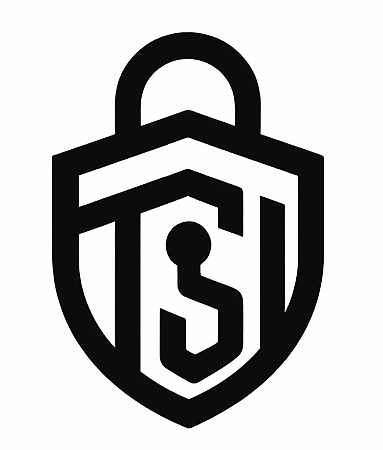If you’ve ever received a suspicious phone call claiming to be from Microsoft, or gotten an urgent email about your bank account, you’re not alone.
Last year, Americans over 50 lost over $3.4 billion to online scams and fraud. That’s not a typo—billion with a B. And the tactics these criminals use are getting more sophisticated every single day.
The Scams You Need to Know About
The “Tech Support” Call You’re at home when the phone rings. The caller says they’re from Microsoft or Apple, and they’ve detected a virus on your computer. They sound professional, even urgent. They ask you to give them remote access to “fix” the problem.
This is a scam. Microsoft and Apple never make unsolicited calls.
The Grandparent Scam You receive a frantic call from someone claiming to be your grandchild. They’re in trouble—maybe arrested or in an accident—and they need money wired immediately. They beg you not to tell their parents.
These scammers prey on your love and concern for family.
Phishing Emails An email arrives that looks exactly like it’s from your bank, Amazon, or the IRS. There’s a problem with your account. Click here immediately to resolve it. The link takes you to a fake website designed to steal your passwords and financial information.
Why Are We Being Targeted?
Let’s be honest about something: scammers specifically target people over 50 because they believe we’re less tech-savvy and more trusting. They think we grew up in an era when a handshake meant something, and they exploit that decency.
But here’s the truth: being cautious online isn’t about age—it’s about awareness. And you’re taking the first step by reading this right now.
The Real Cost Isn’t Just Financial
Dorothy, a 68-year-old retired teacher from Ohio, lost $12,000 to a tech support scam. But the money wasn’t the worst part. “I felt so foolish,” she told us. “I was embarrassed to tell my kids. I stopped using my computer for months because I was afraid it would happen again.”
That isolation—that fear of technology—is exactly what we need to fight against. The internet connects us to family, friends, hobbies, and information. We shouldn’t have to give that up because criminals are out there.
Taking Control: Simple Steps That Make a Big Difference
The good news? Protecting yourself doesn’t require becoming a computer expert. Here are the basics:
Never give remote access to anyone who contacts you first. If you think there might really be a problem, hang up and call the company directly using a number you find yourself.
Verify before you trust. If someone claiming to be family needs money urgently, call them back at their regular number. Real emergencies can wait two minutes for verification.
Look before you click. Hover your mouse over links in emails (don’t click!) to see where they really lead. Your bank’s website should say “chase.com,” not “chase-security-alert.com.”
But What About the Threats You Can’t See?
Here’s where it gets trickier. While you can train yourself to spot suspicious calls and emails, there are threats working silently in the background. Malware can infect your computer through legitimate-looking websites. Ransomware can lock all your family photos and demand payment to return them. Keyloggers can record every password you type.
This is where many of us feel overwhelmed. How are we supposed to protect against threats we can’t even see?
A Solution That Actually Makes Sense
This is exactly why quality antivirus protection has become essential—not optional—for anyone using the internet today. Think of it as a lock on your front door. You wouldn’t leave your house unlocked just because you live in a safe neighborhood, would you?
Modern antivirus software works quietly in the background, doing the watching for you. It blocks malicious websites before you can accidentally visit them. It scans downloads before they can harm your computer. It alerts you to phishing attempts. And it does all of this without you having to become a tech expert.
The key is choosing protection that’s actually designed for real people—not just tech enthusiasts.
Look for antivirus software that offers:
- 24/7 phone support with real humans who speak clearly and don’t rush you
- Automatic updates so you’re always protected against the latest threats
- Simple, readable alerts that explain what’s happening in plain English
- Identity theft protection that monitors if your personal information appears on the dark web
- A money-back guarantee so you can try it risk-free
Many of the best antivirus programs now include features specifically valuable for our age group: password managers that securely store all your login information, VPN protection for when you’re using public WiFi at the library or coffee shop, and webcam protection to prevent unauthorized access.
An Investment in Peace of Mind
Quality antivirus protection typically costs less than $5 per month—about the price of a coffee. Compare that to the average loss of $12,400 that scam victims face, and it’s one of the smartest investments you can make.
More importantly, it lets you use your computer with confidence. You can video chat with grandchildren, shop online, manage your finances, and enjoy the internet without that nagging worry in the back of your mind.
You Deserve to Feel Safe Online
The truth is, we shouldn’t have to choose between staying connected and staying safe. Technology should work for us, not against us.
Protecting yourself from tech scams starts with awareness—and you’ve already taken that step by reading this. The next step is putting the right defenses in place so you can stop worrying and start enjoying everything the internet has to offer.
Because staying safe online isn’t about being old or young, tech-savvy or not. It’s about being smart, prepared, and protected.
Ready to protect yourself? Look for comprehensive antivirus solutions with high ratings from independent testing labs, strong customer reviews from users over 50, and responsive customer support. Many offer free trials so you can test the software before committing. Your security—and your peace of mind—is worth it.

